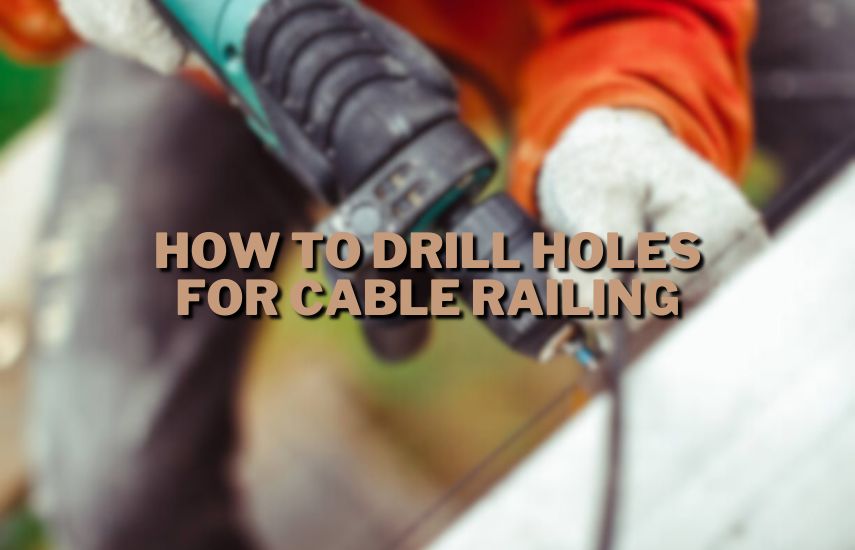Have you ever wondered about the environmental impact of lithium mining and how it compares to the controversial practice of oil drilling?
With the growing demand for lithium, a key component in the production of batteries for electric vehicles and other electronic devices, the mining of this valuable mineral has come under increased scrutiny.
Is lithium mining worse than oil drilling? It is hard to say whether lithium mining or oil drilling is better or worse for the environment because both have big effects.
Oil drilling tends to use more water and release more greenhouse gases than lithium mining.
In this blog, we’ll take a closer look at the pros and cons of lithium mining and explore whether it’s really worse than oil drilling in terms of its impact on the planet.
Whether you’re an eco-conscious consumer or simply curious about the latest developments in sustainable energy, this blog is for you.
What Is Lithium Mining?
Lithium is a highly sought-after metal, primarily used in the production of batteries for electric vehicles and energy storage systems.
As the world moves towards a greener future, the demand for lithium is expected to rise exponentially. Lithium mining can have big effects on the environment and on people’s lives.
The Lithium Extraction Process
Lithium is typically extracted from lithium-containing minerals, such as spodumene and pegmatite, through a process called lithium brine mining.
The process involves drilling a well into an underground aquifer and pumping out the brine, which contains dissolved lithium.
The brine is then transferred to evaporation ponds, where the water is allowed to evaporate, leaving behind the lithium.
Another method of lithium extraction is through hard rock mining. In this process, miners drill into rock formations containing lithium, extract the ore, and then crush and process it to extract the lithium.
Hard rock mining is less common than lithium brine mining due to its higher costs and environmental impact.
Environmental Impacts of Lithium Mining
Lithium mining can have a significant negative impact on the environment. Lithium has to be pumped out of the ground with a lot of water.
Pumping brine from deep aquifers can use up all the water in the area. The evaporation ponds that are used to mine lithium brine can pollute the environment with heavy metals and chemicals that are harmful.
Hard rock mining can also be bad for the environment. A lot of rock has to be taken away as part of the process, which can damage the land, destroy habitats, and pollute the air.
Also, the chemicals that are used to process lithium ore can pollute the water and land nearby.
Social and Economic Consequences
Lithium mining can have big effects on the economy and society of the places where it happens.
There have been times when mining operations have forced local people to move and destroyed historic sites.
Also, lithium mining can bring in more foreign workers, which can put a strain on local systems and cause social problems.
On the other hand, lithium mining can also provide economic opportunities for local communities, particularly in developing countries.
The industry can create jobs and generate revenue for local governments, which can be used to fund public services and infrastructure.
Addressing Sustainability Concerns in Lithium Mining
To address the sustainability concerns associated with lithium mining, companies and governments are exploring a range of solutions.
One approach is to develop more sustainable mining practices, such as using renewable energy sources to power mining operations and reducing water usage.
Another solution is to promote recycling and reuse of lithium-ion batteries, which can reduce the need for new mining operations.
Furthermore, efforts are being made to ensure that local communities benefit from lithium mining operations.
This includes engaging in meaningful dialogue with community leaders and providing economic opportunities and social programs that support local communities.
While lithium mining is necessary to meet the growing demand for renewable energy technologies, it can have significant environmental and social impacts.
By implementing sustainable mining practices and ensuring that local communities benefit from mining operations, we can mitigate these impacts and create a more sustainable future.
What Is Oil Drilling?

Oil drilling is the process of extracting crude oil from the earth’s surface or below the seabed. It involves drilling a well into the ground and then using various methods to extract the oil.
Oil drilling has been a major source of energy for many years and remains an essential component of the global economy.
The Process of Oil Extraction
Oil extraction involves several steps, including exploration, drilling, and production.
The first step is exploration, where geologists identify potential oil reserves by studying geological maps and conducting seismic surveys.
Once a suitable location has been identified, drilling can begin.
The drilling process typically involves using a rotary drill to bore a hole into the ground, which is then lined with a steel casing to prevent the well from collapsing.
A drilling fluid is also used to lubricate the drill bit and carry the rock cuttings to the surface.
Once the well has been drilled, a series of production facilities are installed to extract and process the crude oil.
Environmental Impacts of Oil Drilling
Drilling for oil has big effects on the environment, such as destroying habitats, polluting water, and releasing greenhouse gases.
Drilling can ruin wetlands, mess up wildlife habitats, and hurt the ecosystems around them. Also, oil spills are a big problem because they can dump a lot of oil into the environment, hurting marine life and coastal towns badly.
A lot of water is needed for oil drilling, which can put a strain on the water supplies in the area.
Social and Economic Consequences
There are both good and bad social and economic effects that can come from oil digging. On the one hand, it can help the local economies grow and create jobs.
On top of that, it can cause social and economic inequality and hurt people’s health and well-being in the area.
Drilling for oil can also lead to political unrest and war, especially in places with lots of natural resources.
Many oil-producing countries have had big social and economic problems because they didn’t know how to handle their oil supplies well.
Strides Toward Sustainable Oil Production
In recent years, there has been a growing emphasis on sustainable oil production, which aims to minimize the environmental and social impacts of oil drilling.
Some of the strategies used to achieve this include reducing greenhouse gas emissions, improving energy efficiency, and using renewable energy sources.
Companies are also investing in new technologies that can reduce the environmental impact of oil drilling, such as using bio-based drilling fluids and developing cleaner production methods.
There is a growing focus on engaging with local communities and ensuring that the benefits of oil production are shared equitably.
Overall, while oil drilling remains a critical component of the global energy system, there is a need to balance the economic benefits with the environmental and social costs.
By promoting sustainable oil production, we can help ensure that we meet our energy needs while safeguarding the planet for future generations.
Comparative Analysis: Is Lithium Mining Worse Than Oil Drilling?

When it comes to the debate of whether lithium mining is worse than oil drilling, there are a number of factors that need to be taken into consideration.
We will conduct a comparative analysis of the environmental footprints, social and economic impacts, regulatory frameworks, and industry practices of both lithium mining and oil drilling.
Assessing environmental footprints
Exploring for lithium and oil both have big effects on the earth.
Lithium mining needs a lot of water, and in places where water is already scarce, it can use up all the available water.
To get lithium out of the ground, toxic chemicals and heavy metals may be released into the atmosphere. These can pollute the water and soil.
It is known that oil digging, on the other hand, hurts the quality of the air and water.
Greenhouse gases and other pollutants can be released into the air when oil is extracted, processed, and transported. These pollutants can make climate change worse.
Leaks and spills of oil can also be very bad for sea life and ecosystems.
Overall, both lithium mining and oil drilling have big effects on the environment. But the severity of these effects may change based on where the activities happen, the rules that apply, and the way the businesses work.
Evaluating social and economic impacts
Both lithium mining and oil drilling can have effects on the environment, but they can also have social and economic effects on the areas where they happen.
Lithium mining can force native groups to move and mess up their traditional ways of using the land.
Some businesses and people may be able to get the most economic benefits from lithium mining, which can lead to social inequality.
Drilling for oil can also have bad effects on society and the economy. When oil companies are in an area, they can cause problems with the people that live there over land use and resource rights.
Exploration for oil can also be bad for the health of the people who live nearby, especially in places where the drilling affects the water and air conditions.
Again, the severity of these effects may be different in different places, based on the laws and rules that apply, and the way that the industry works.
Reviewing regulatory frameworks and industry practices
Regulatory frameworks and industry practices play an important role in mitigating the negative impacts of both lithium mining and oil drilling.
Governments and industry groups can set standards and regulations to minimize the environmental and social impacts of these activities.
In the case of lithium mining, industry groups have developed best practices to reduce the use of water and chemicals in the extraction process.
There are efforts underway to improve the recycling of lithium batteries to reduce the need for new mining.
Oil drilling is subject to a range of regulations aimed at reducing the impact on the environment and local communities.
These regulations cover everything from oil spill prevention and response to air and water quality standards.
Overall, the regulatory frameworks and industry practices associated with both lithium mining and oil drilling are constantly evolving, and it is important to stay up-to-date on these developments in order to fully assess the environmental and social impacts of these activities.
Alternatives and the Future of Energy

As we continue to witness the impact of climate change on our planet, it is clear that we need to transition to more sustainable and renewable energy sources.
The burning of fossil fuels like oil and gas has caused a lot of greenhouse gas pollution, which are what cause global warming.
Exploring alternative energy sources
One promising alternative energy source is solar power. Solar energy is harnessed by using photovoltaic cells that convert sunlight into electricity.
The use of solar energy has grown significantly in recent years, with many countries investing in large-scale solar projects.
Wind power is also a popular alternative energy source, with turbines that harness the power of the wind to generate electricity.
Both solar and wind power are renewable energy sources and have a much lower impact on the environment compared to fossil fuels.
Sustainable mining and drilling practices
If mining and drilling are not done in a way that is good for the earth, they can have big effects.
For example, mining lithium can pollute water and damage land if the right steps aren’t taken to lessen its effects.
In the same way, oil drilling can be very bad if there is an oil spill or if the process hurts environments that are already weak.
Companies that do mining and digging must put sustainability first and use environmentally friendly methods to keep their effects to a minimum.
Technological advancements in energy production
Advancements in technology have made it possible to produce energy in more efficient and sustainable ways.
For example, carbon capture and storage technology can capture carbon emissions from power plants and store them underground, reducing the amount of carbon dioxide released into the atmosphere.
The development of more efficient batteries and energy storage systems has also made it possible to store energy from renewable sources like solar and wind power for use when the sun is not shining or the wind is not blowing.
These technological advancements are crucial in the transition to a more sustainable and renewable energy future.
Conclusion
As we have explored in the previous sections, both lithium mining and oil drilling have their own unique environmental impacts.
Comparing the two is not a simple task due to the complexity of the factors involved.
In order to effectively address the energy challenges we face today, it is important to take a holistic perspective that considers not only the environmental impacts but also the economic and social factors involved.
Ultimately, the goal should be to move toward a sustainable energy future that balances the needs of the present with the needs of future generations.
This will require a shift away from our current reliance on fossil fuels and toward the development of clean energy sources.
While lithium mining and oil drilling may both play a role in this transition, it is important to carefully consider the potential impacts of each and work toward solutions that minimize harm to both the environment and communities affected by these industries.
FAQs
How does lithium mining compare to oil drilling in terms of environmental impact?
Lithium mining typically has a lower direct impact on greenhouse gas emissions and air pollution compared to oil drilling.
However, both processes can have significant environmental consequences in different ways.
Which process, lithium mining or oil drilling, has a more immediate impact on ecosystems?
Habitat loss, spills, and contamination are some of the more direct and obvious ways that oil drilling hurts ecosystems.
Lithium mining can also have an effect on the environments in the area, though it might be smaller and not as bad.
In terms of resource depletion, how do lithium mining and oil drilling differ?
Lithium and oil are both materials that can’t be made again. Of course, the rate of loss and long-term effects are not all the same.
Higher rates of use could cause oil supplies to run out faster, while the demand for lithium is going up as more people buy electric cars.
Which process, lithium extraction or oil drilling, poses a greater challenge for water usage?
Lithium extraction often requires significant water usage in certain methods, potentially impacting local water sources.
Oil drilling also consumes large amounts of water, primarily for extraction processes like hydraulic fracturing (fracking).
Considering future sustainability, which industry, lithium mining or oil drilling, might face more significant challenges?
Both businesses have problems with sustainability, but the switch to electric cars and renewable energy could make more people want lithium.
For lithium production to continue in the future, it is important to find a balance between meeting this demand and using responsible mining methods.
On the other hand, worries about climate change and the move toward cleaner energy sources make it hard to drill for oil.









